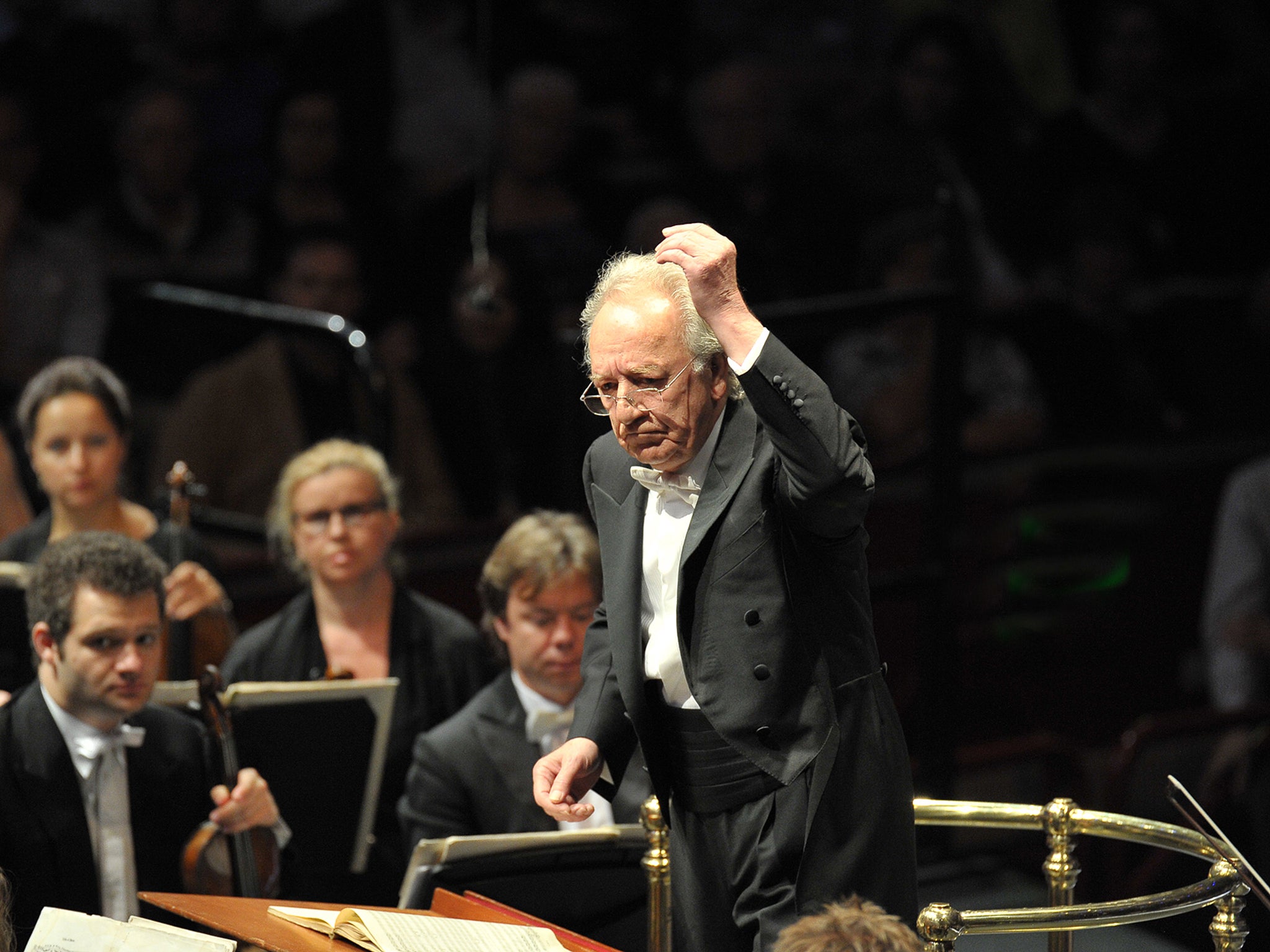Prom 70, Royal Albert Hall, review: Nikolai Lugansky shines in Rach 2
Their playing was not immaculate but it was intensely dramatic, and their soloists – notably their lead violinist – were superb

Nikolai Lugansky was the first of the young Russian pianists to make his mark in the West after the dissolution of the Soviet Union, and his dependably excellent performances of the Romantic concertos have made him a Proms favourite. This time, as soloist in Rachmaninov’s Piano Concerto No 2 in C minor with the St Petersburg Philharmonic under Yuri Temirkanov’s direction, he was in every sense on home ground, and things felt right from the start.
The way he delivered the initial chordal sequence suggested a great door slowly swinging open to reveal a carillon of bells, and although the ensuing five minutes give the piano little chance to shine, the muscularity of his passage-work ensured that he was a powerful presence.
If Temirkanov paced this movement with tenderness, he allowed his soloist to put a firm and unsentimental stamp on the dreamy Adagio; the Scherzando finale was Lugansky’s licence to let rip with effortless virtuosity, and his encore – a Rachmaninov Etude-Tableau – had languid grace.
The all-Russian programme had begun with a suitably atmospheric account of Tchaikovsky’s Francesca da Rimini, and it ended with a performance of Rimsky-Korsakov’s Scheherazade which brought out the orchestra’s sterling qualities. Their playing was not immaculate but it was intensely dramatic, and their soloists – notably their lead violinist – were superb.
Join our commenting forum
Join thought-provoking conversations, follow other Independent readers and see their replies
Comments
Bookmark popover
Removed from bookmarks